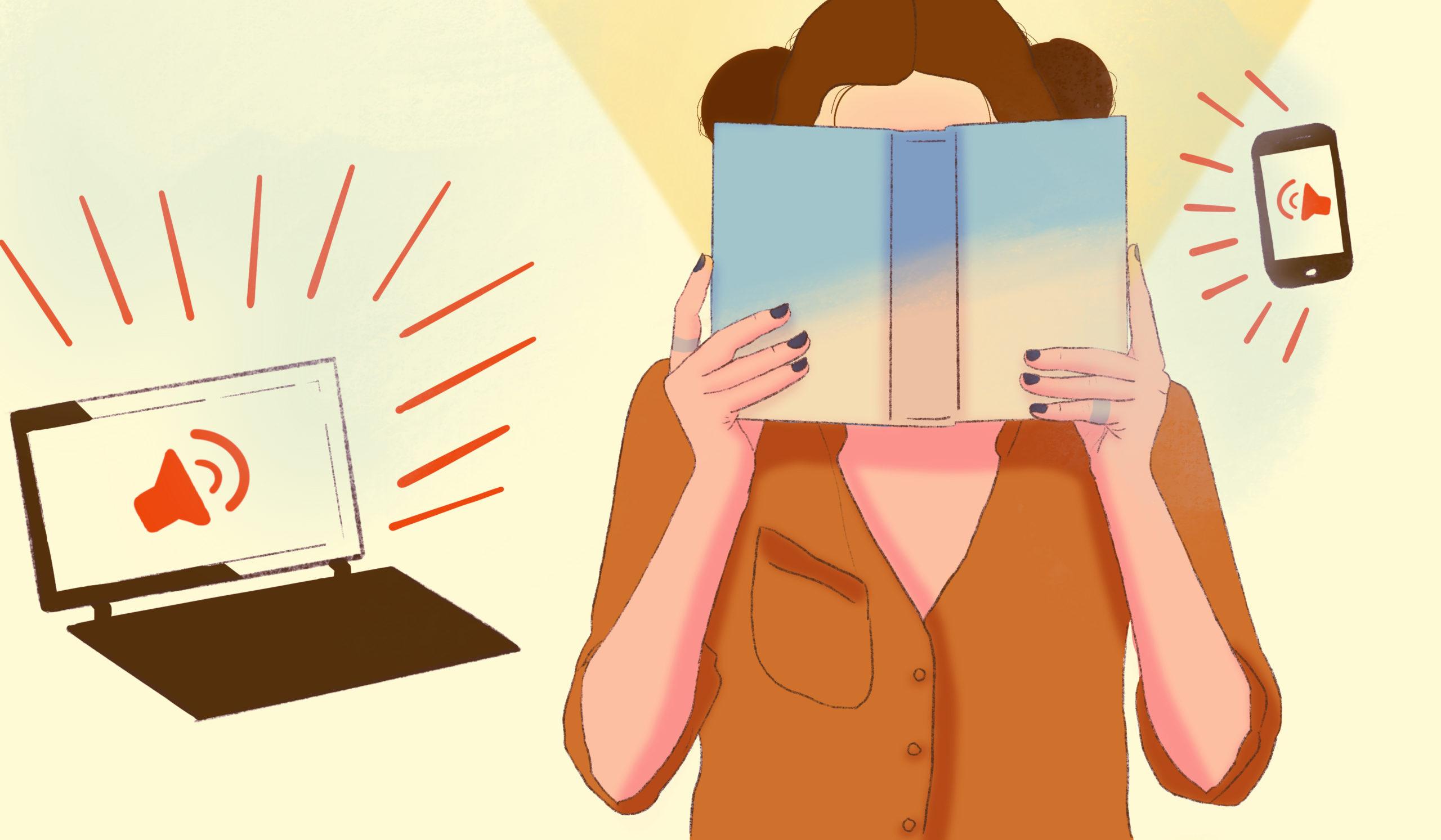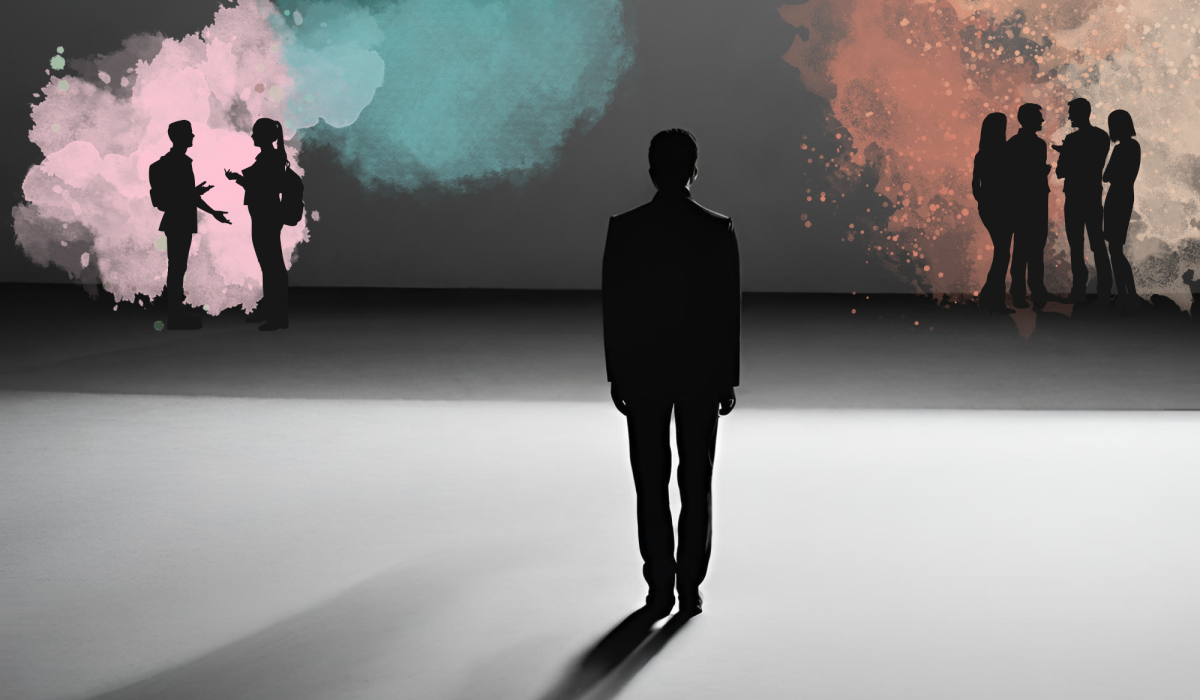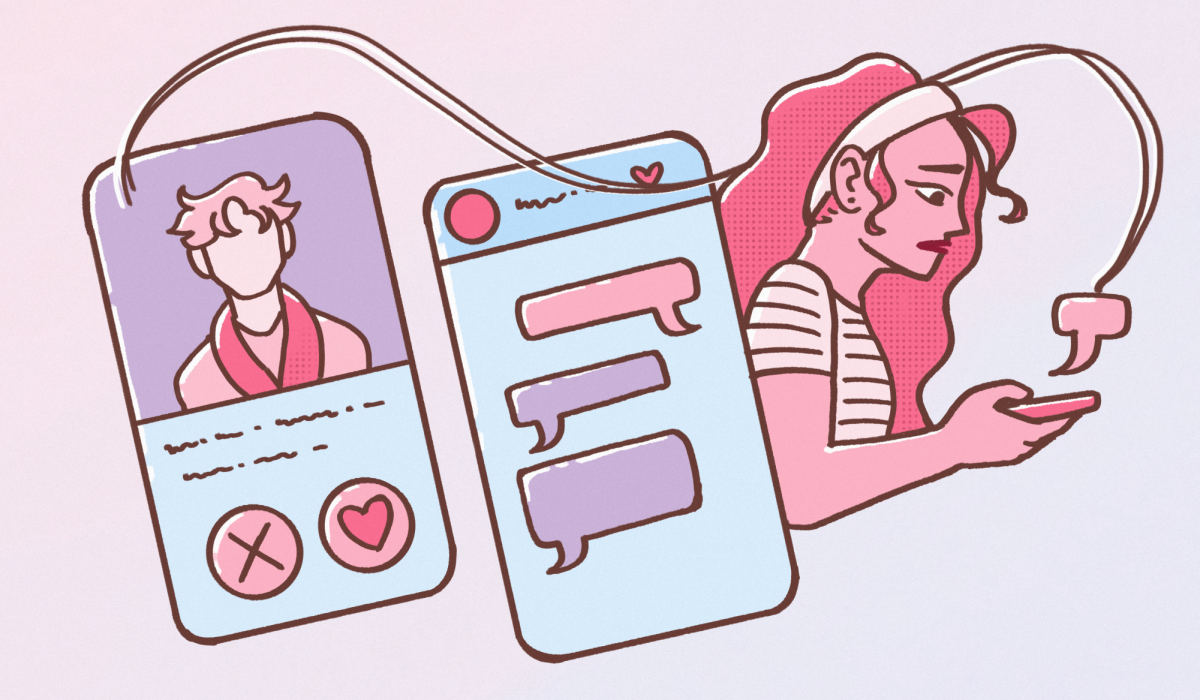I used to avoid checking my average daily screen time. A part of me preferred to stay in a bubble of ignorance and refuse to acknowledge the frighteningly large spike in hours I spent looking at a screen due to quarantine and the shift to the online world that boosted my digital presence. However, it is important to be aware of our habits relating to technology because our reliance and addiction to these devices has led to constant connectivity. Essentially, this unhealthy behavior of consistently maintaining a digital presence comes with harrowing side effects, including damage to the brain as well as mental health.
Over the years, studies have proven that constant connectivity harms brain functionality, directly contributing to the downfall of users’ attention spans and ability to focus during important tasks. Simultaneously, these devices, particularly smartphones, also create a startling addiction by providing quick emotional gratification through dopamine hits in the brain.
Despite these drawbacks, constant connectivity remains extremely difficult to prevent, especially with the recent Coronavirus pandemic. A survey conducted in 2019 reported that 81 percent of Americans own smartphones and 75 percent own a desktop or laptop. In recent months, it is highly likely that these percentages have significantly increased due to recent buying trends during the COVID-19 pandemic that indicated a surge in the sale of electronic devices. In addition, the majority of workplaces and schools have transitioned online, encouraging people to work from laptops, computers, and various electronic devices.
This recent switch to an entirely online world plays a key role in keeping people plugged in for highly unreasonable amounts of time. Based on my personal experiences with online classes, it is now common to receive Canvas notifications, emails, Piazza announcements, Discord notifications from class servers, etc. at all hours of the day. This very quickly becomes overwhelming and stress-inducing, making it easier to feel burnt out due to a constant bombardment of school-related material and what seems like very little time for relaxation, which is not an uncommon experience.
“According to my phone, I get 200+ notifications, combined from Canvas, emails, Piazza, class- and organization-related Discords, and lab-related Slack groups, a day,” Sixth College sophomore Chris Cha said. “The amount of notifications makes it so that I am constantly engaged with work, and I don’t really get a break ever.”
For both professors and students, this constant electronic connection is difficult to escape from guilt-free because it feels both obligatory and necessary to maintain, given the circumstances of online school and the pressure to not miss out on important information or questions. In reality, this lack of crucial periods of disconnect harms both parties and upholds an unrealistic expectation to always be available.
Even during non-school or work-related activities and conversations, constant connection can come across as harmful due to a lack of personal boundaries. As opposed to earlier times when phone calls and emails were the simplest digital ways to get in touch, we now have countless applications and devices that contribute to the toxicity of 24/7 reachability. Many apps, including Instagram, Snapchat, Facebook, Discord, GroupMe, and Canvas, all offer some form of direct messaging and the ability to share anything from anywhere. With these apps comes an intense social pressure to stay connected and relevant even if it clashes with up-keeping mental health. This pressure also makes it difficult to turn off our devices and completely disconnect. We are so focused on having a digital presence that the simple acts of not responding to text messages for hours at a time or leaving someone’s messages unopened are now commonly looked at as signs of distress. We have all become so accustomed to instant responses that a lack of them is enough to be worrisome.
It is understandable why online communication has skyrocketed during this period of isolation. On a personal level, having a variety of ways to converse and reach out can make us feel connected to our community, which is not necessarily a bad thing. However, when the nonstop communication becomes overwhelming and responding feels more like a duty as opposed to a comfort is where we should learn to draw the line. The healthiest suggestion I can make in order to avoid this is to create reasonable boundaries and prioritize personal mental health over the expectations of others. For example, I recently made the choice to delete Instagram, as it was monopolizing my time while simultaneously harming my mental health. I left Snapchat and texting open and available as a means of communication and, in a healthier manner, I occasionally began checking Instagram on a browser around once every other month when it felt right for me, so that I no longer felt the social pressure of having an obligatory online presence.
Of course, this method of deletion is harder to use in cases that involve school or work. However, it is still reasonable and possible to create boundaries, such as consolidating certain devices for personal use and work use, making sure that the two do not overlap. This can look like the following: deleting the mail app from a smartphone and only checking emails on a laptop or computer, checking Canvas only on a device used for work or school, or texting only from a phone. Overall, the most important thing is to practice healthy habits that will prioritize and uplift mental health.
With the continuation of online school and work, it is impossible to ignore the reality that many of us now spend a large portion of our day on or around digital devices. Whether we like it or not, our situations are most likely going to remain the same for a fair amount of time, so it is important to summon your courage and check your screen time. In the end, do not be afraid to reflect on your mental health and implement changes that work for you.
Art by Ava Bayley for the UC San Diego Guardian.










Elisabeth • Mar 12, 2021 at 12:05 pm
Rather, the problem is that you need to understand that everything has its own place and time. It is worth allocating time for rest, study and work. And even better, to equip your work area with glass doors, you can see here the best doors website. In order not to be distracted by anything else, it helps a lot
Emma • Jan 22, 2021 at 6:22 am
The skill of calligraphy is one of the important aspects of a student’s successful studies, find out more about Dex Lettering here. Visual-motor skills, such as eye-hand coordination, are associated with academic achievement. Scientists have proven that the development of fine motor skills in early childhood can determine not only the success in writing, but also the subsequent progress of the student in reading and mathematics in elementary school.
Joseph • Jan 18, 2021 at 1:54 am
I am not at all surprised by the fact that during the pandemic, the demand for social networks, and also applications for communication, increases. Children spend more and more time in correspondence. There’s nothing wrong with that, but the important thing is who they communicate with, it won’t hurt them. You, as parents, should protect them from negative impact, and such tools – how to hack WhatsApp, will greatly help you in this